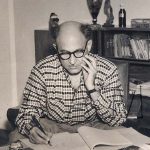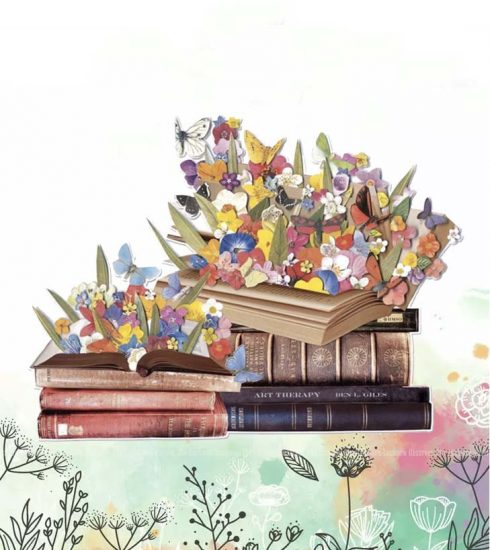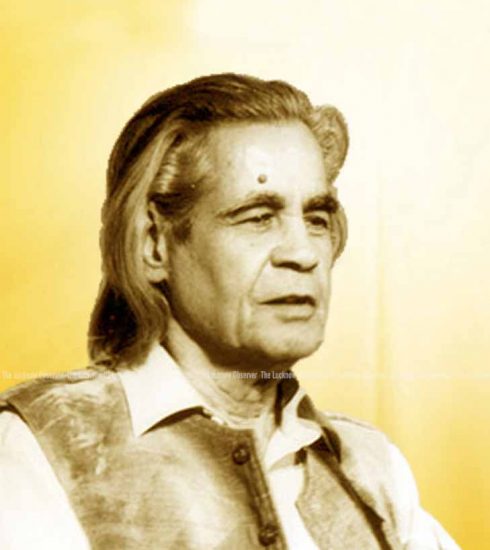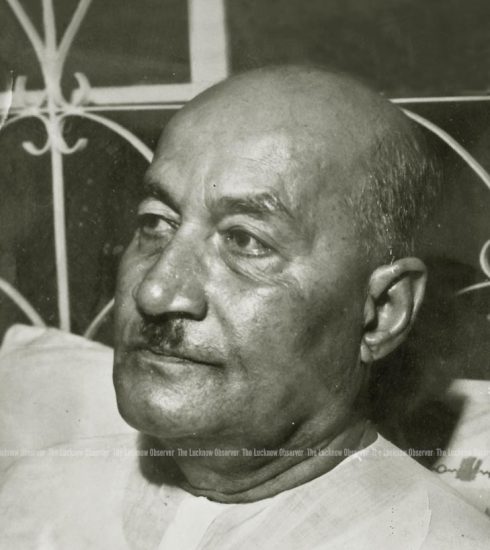Chupke chupke Hasrat…
Team TLO resurrects the memories of the man who gave India’s freedom fighters the slogan ‘Inquilab Zindabad!’
“Hai Mashq-e Sukhan Jaari Chakki Ki Mashaqqat Bhi,
Eik Turfa Tamasha Hai Hasrat Ki Tabiyat Bhi”
Remember Chupke chupke raat din aasoo bahana yaad hai…? Well, who doesn’t, especially those who remember Pakistani ghazal maestro Ghulam Ali and the film Nikaah, starring Salma Agha, Deepak Parasher and Raj Babbar.
But very few would know that the ghazal made immortal by the film was the work of Maulana Hasrat Mohani, a multi-talented poet who has long faded into history.
With this in mind my friend Farooq Rizvi and I decided to spend a Sunday that was different from other Sundays. Braving the scorching heat of the mango season, we headed for Mohan, a small town in the district of Unnao in Uttar Pradesh, where the legendary poet Hasrat Mohani grew up and lived his life. More about it later…
Hasrat Mohani was famous the world over as a poet, journalist, politician, a fearless freedom fighter and parliamentarian. His ancestors Syed Mahmood Nishapuri came from Nishapur and settled in Mohan. He was the 2nd son of Syed Azhar Hasan. Born as Syed Fazl-ul Hasan in 1875, he was a brilliant student. He completed his primary education from a madarsa in Mohan and acquired the knowledge of Urdu, Persian and Arabic from his teachers, Miyan Ji Ghulam Ali Mohani and Miyan Ji Balaqi Mohani.
In 1894, he passed his middle school from Mohan middle school and secured the first position in the entire state of Central Province. In 1899, he completed his high school from Government High School of Fatehpur with honours, was awarded a scholarship and joined the Aligarh Muslim University, where his personality turned vibrant and he completed his graduation in 1903.
Rumaisa Mohani, his great grand daughter who is now settled in the United Arab Emirates (UAE) informed me that Hasrat Mohani was married in 1903 to Nishat-un Nisa Begum and they had two daughters. Naeema Begum, the elder daughter later migrated to Pakistan. Khalida Begum, the younger daughter was married to famous barrister of Delhi Nafees Siddiqui (who sued the producer of Nikaah movie, for using Hasrat’s ghazal Chupke Chupke).
Afzal Usmani typically described Hasrat Mohani, when he arrived in AMU, as “short in height, lagar badan, gandumi rang, uljhi uljhi darhi (beard), kalabatuni topi, char khaney ka angarkha, takhno se uncha pajama, old fashioned glasses, umbrella in one hand a pandaan in the other. His appearance and style earned him gave him a lot of attraction and the title ‘khala jaan’, which stuck with him in Aligarh for a while.”
Contributions in freedom struggle
Jab Tak Wo Rahe Dunya Mein Raha Hum Sab Ke Dilo’n Par Zor Unka,
Ab Reh Ke Bahisht Mein Nizd-i Khuda Huro’n Pe Karenge Raj Tilak
Hasrat Mohani was the first person who demanded complete independence way back in 1921. ‘Inquilab Zindabad’, the famous slogan was coined by him only. In the political thoughts, he was a supporter of Bal Gangadhar Tilak. He was also the first Indian leader who proposed guerilla warfare against British rule. To promote the swadeshi movement, he started a swadeshi store which was run by his wife. With the winds of the freedom movement picking up momentum, the swadeshi store became a successful venture.
Hasrat Mohani actively participated in the struggle for Indian Independence and was jailed several times by the British. He was imprisoned in 1908 for two years for promoting anti-British ideas for publishing an article against British policies in his literary magazine ‘Urdu-e Mualla’. He was arrested again in 1916 and in 1922. He was among the founders of the Communist Party of India. He formed ‘Anjuman Khuddam-e Harmain’ under the leadership of Maulana Abdul Bari Farangi Mahli and organized ‘All India Hijaz Conference’ in Lucknow under its banners. In 1935 he launched an independent party with the support of Shaikh Mushir Hasan Qidwai, Maulana Azad Subhani, Syed Zakir Ali and Syed Hasan Riyaz to promote Hindu-Muslim unity and mutual cooperation. In recognition of his efforts, he was made a member of the Constituent Assembly which drafted the Indian constitution.
Throughout his life, Hasrat faced financial problems, but he consistently declined to take assistance from anybody
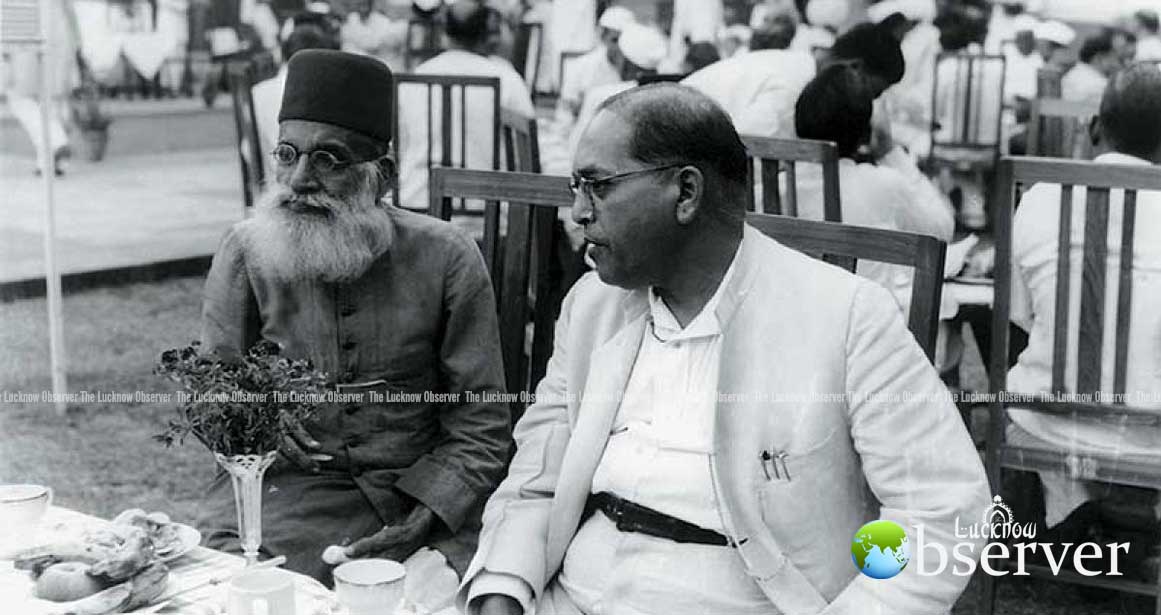
Maulana Hasrat Mohani with Baba Bhim Rao Ambedkar
Literary Contributions
Dam-e Akhir Woh Mile Bhi To Mile Kya Hasrat,
Khet Sab Sookh Chale Apni To Barsaat Hui.
He was the first Muslim journalist who was put in jail. His interest in Urdu journalism inspired him to start ‘Urdu-e Mualla’ in 1903 and settled down in Aligarh city. Later, he also started Tazkiratush Shu’ra as well as daily newspaper ‘Mustaqil’.
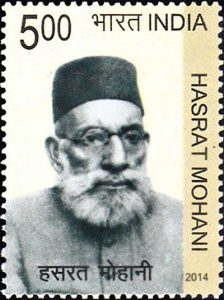 Among his important books were Kulliyat-e Hasrat Mohani (Collection of Hasrat Mohani’s poetry), Sharh-e Kalam-e Ghalib (Explanation of Ghalib’s poetry), Nukaat-e Sukhan (Important aspects of poetry) and Mushahidaat-e Zindaan (Observations in Prison). Tasleem Lucknawi and Naseem Dehlvi were his ustad in poetry. His involvement with literature and journalism brought into sharp focus the loving man that he was, who introduced a new trend in Urdu poetry, which was a blend of the praiseworthy attributes of the schools of thought that existed in Delhi and Lucknow.
Among his important books were Kulliyat-e Hasrat Mohani (Collection of Hasrat Mohani’s poetry), Sharh-e Kalam-e Ghalib (Explanation of Ghalib’s poetry), Nukaat-e Sukhan (Important aspects of poetry) and Mushahidaat-e Zindaan (Observations in Prison). Tasleem Lucknawi and Naseem Dehlvi were his ustad in poetry. His involvement with literature and journalism brought into sharp focus the loving man that he was, who introduced a new trend in Urdu poetry, which was a blend of the praiseworthy attributes of the schools of thought that existed in Delhi and Lucknow.
The exceptional qualities of sincerity, forbearance, fearlessness, perseverance, patience and contentment which the jail life had developed in him, are profoundly re␣ected in his poetry. His individuality as a poet is reflected in his poems throughout his career, but the best part of his contribution to Urdu poetry was composed in jail, where from each time when he was released, he used to bring out a volume of Urdu poems.
Though he was not provided paper and ink by the jail authorities, he memorized his couplets and released them to the press after his release from the prison. He was the founder of the modern Urdu lyrics – jaded Urdu ghazal. He concentrated mainly on the sincerity of thought and simplicity of diction; hence his poems paint the true but dignified sentiments of love and portray the multifarious phases of human passions.
Like Meer Taqi Meer, Hasrat, too, spent a life of despair and anxieties, hence there is a spiritual connection between the two and the works of both reflect deep pathos. He founded a new school of Urdu lyrics, whose aim was to depict true human sentiments and reactions to his environment. According to Mathew Arnold, “Literature is the mirror of life,” and like the celebrated English poet Lord Tennyson, Hasrat, too, was much affected by his environment. While he went on Hajj 11 times, he also wrote verses expressing deep love for Lord Krishna, and often went to Mathura to celebrate Janmashtami.
Aankho’n Mein Noor-e Jalwa-e Be-kaif-o-kam hai Khaas,
Jab Se Nazar Pe Unki Nigaah-e Karam Hai Khaas,
Kuch Hum Ko Bhi Aata Ho Ki Ae Hazrat-e Krishna,
Iqlim-e Ishq Aap Ke Zer-e Qadam Hai Khaas,
Hasrat Ki Bhi Qubul Ho Mathura Mein Haziri,
Sunte Hain Aashiqo’n Pe Tumhara Karam Hai Khaas.
Hasrat died on 13th May 1951 and was buried at Maulvi Anwar Bagh, near the City Station in Lucknow.
Neglect of Heritage
According to Rumaisa Mohani, “Hasrat Mohani Memorial Society was founded in 1951. There is Hasrat Mohani colony, Hasrat Mohani Road and Hasrat Mohani School in Karachi. Hasrat Mohani Library at Hyderabad, Pakistan is host to a wonderful collection of more than 30,000 books”.
On my visit to Mohan, we found that the access road to Mohan welcomes you through ‘Hasrat Mohani Gate’ which was installed recently. There are 53 mohallas in Mohan but the Maulvi Gharana area which is the home of Hasrat has a special place. The road in front of his home is named after him but the name-stone has been lost due to neglect. Part of his home has been converted into a school due to efforts of the local people.
No substantial or concrete project has been initiated by the authorities, laments Basheer Ahmed, the caretaker of his mosque near his home.
The apathy on the part of the government or the literary community is evident in the absence of any annual commemorative activities or programmes either in Mohan or Lucknow. Nothing tangible exists in terms of heritage or tribute that could revive the memories of Hasrat Mohani.
The following couplet would aptly express the dejection of Mohani:
Teri Mehfil Se Uthata Ghair Mujhko Kya Majaal,
Dekhta Tha Mein Ki Toone Bhi Ishara Kar Diya
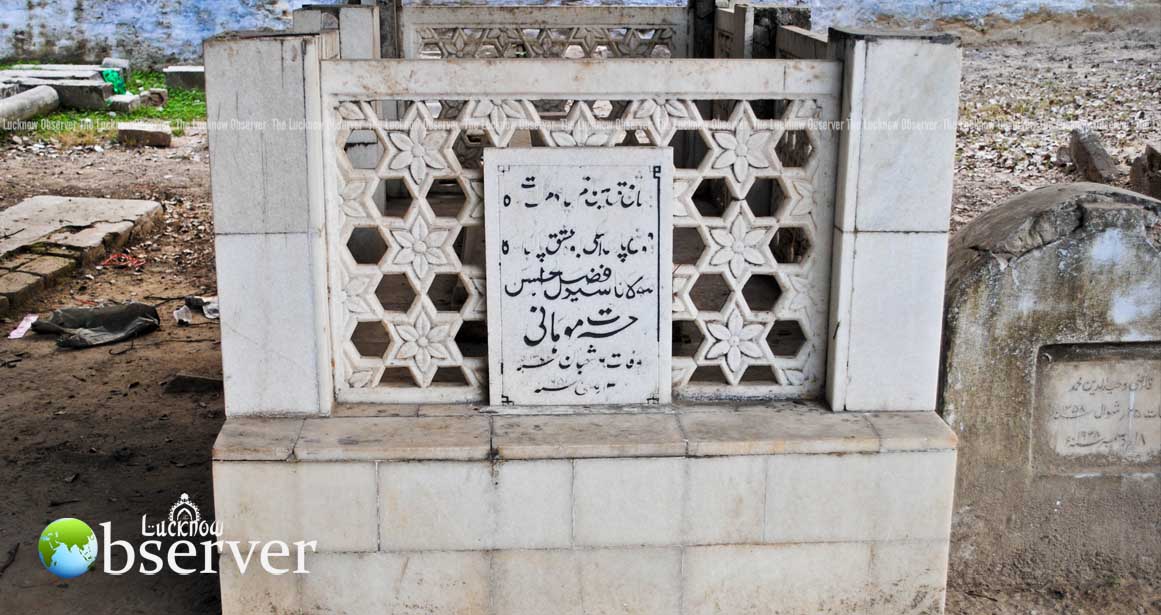
Maulana Hasrat Mohani Grave at Anwar Bagh, Lucknow






